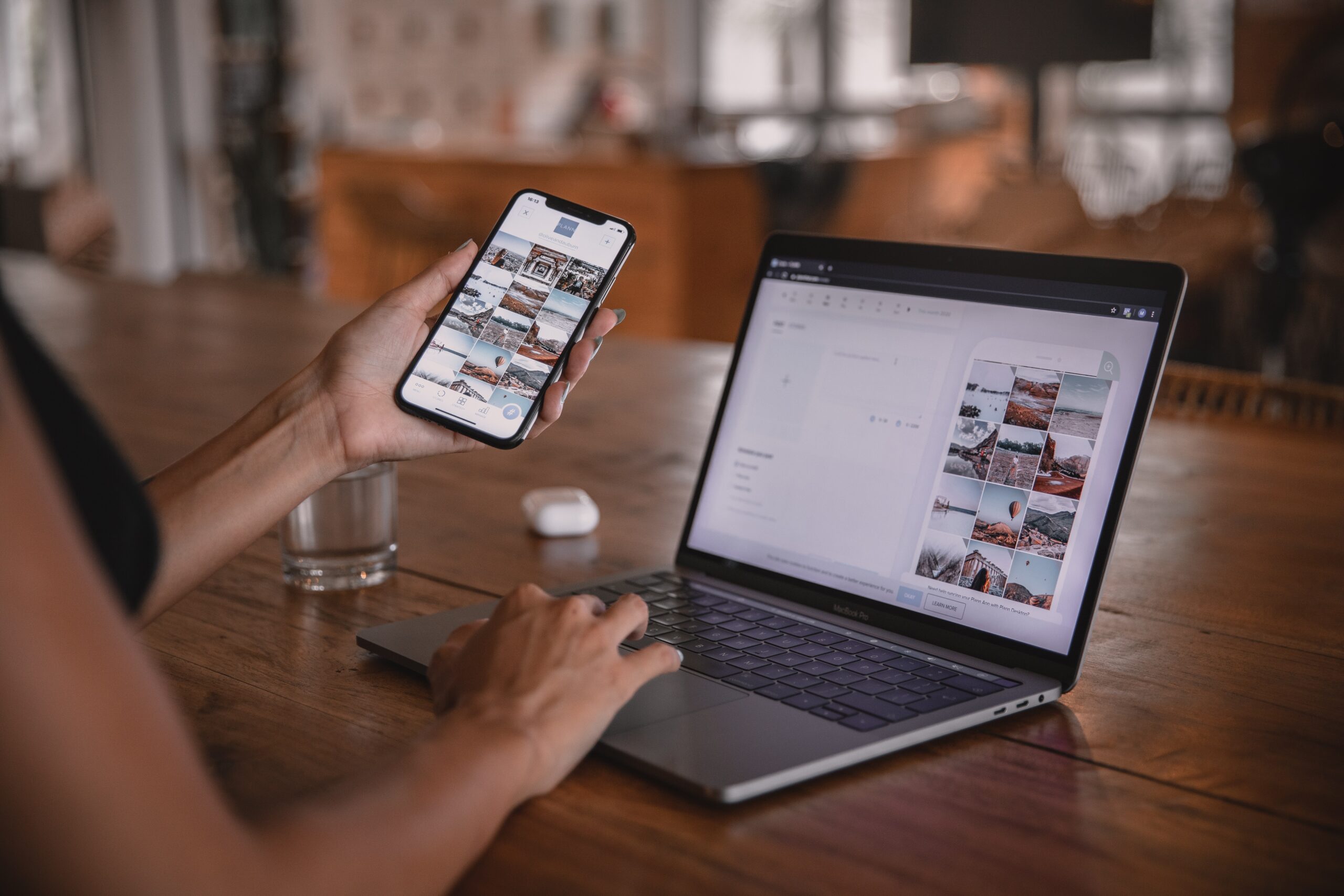Starting a blog is a fulfilling journey and can be profitable, presenting a world of new possibilities. By blogging, you can position yourself as a trusted authority in your niche, make money part-time or full-time, and engage with others with similar interests and passions.
In this guide, we’ll show you the ropes on how to kick off a blog and monetize it, regardless of your level of experience.
Table of Contents
What Is a Blog?
Originally, in the internet’s early days, blogs were similar to keeping a diary. The first blogs were personal spaces for sharing individual thoughts and life events.
But blogging has come a long way since then. Today, individuals and companies use blogs to disseminate information and generate revenue or commissions.

7 Reasons to Start a Blog
There are numerous motives for beginning a blog. You might want to start blogging as a fun hobby, to earn extra cash, to create a community, or for reasons such as:
1. To Document Your Life
“Blog” is a shortened version of “weblog,” stemming from its initial purpose as a means to log daily events. You might want to start a blog as a centralized place to store and share your memories and pictures.
2. To Explore Creativity
Blogging involves writing, editing, and some design, making it creative. Blogging is a fantastic option if you’re searching for an affordable way to express yourself.
3. To Share Your Unique Perspective
You’re unique, with thoughts and experiences all your own. A blog allows you to share these with others, engage in conversations, and form real connections in the process.
4. To Connect with Others
Blogging is an excellent tool for meeting new people, including fellow bloggers, content creators, or your target audience. It creates opportunities to connect with individuals you might not otherwise meet. The blogging community is especially active on platforms like Facebook, Instagram, and Reddit.
5. To Improve Your Writing and Digital Marketing Skills
Blogging is an art. Regularly crafting blog posts can be helpful if you’re keen on enhancing your writing abilities.
Also, there’s a lot of work in managing a blog. Bloggers often handle their website, social media marketing, and writing content. If you want to learn these skills, starting a blog is a great way to gain hands-on experience.
6. To Develop Your Personal Brand and Trustworthiness
Having a blog can assist in establishing your personal brand and positioning you as a reliable authority in your field. The content you create can show off your knowledge and expertise.
7. To Earn Revenue or Sales
Blogging can be a source of revenue, whether for an existing business or a new one. According to Indeed, the average annual income for bloggers is about $37,073.

12 Steps to Kick Off Your Blog
Ready to launch your blog but unsure where to begin? Follow these steps to get on the right track, regardless of your goals.
1. Choose Your Topic or Niche
Picking a niche might seem challenging or restrictive, but it’s key to building long-term credibility. Covering various topics is okay, but keep your main focus consistent and specific to attract and retain readers.
Choosing the right niche for your blog involves several key steps:
- Assess Your Interests and Expertise: Start by considering topics you are passionate about and have knowledge in. Blogging in a niche you’re interested in will make it more enjoyable and sustainable in the long run.
- Research Audience Interests: Identify what topics audiences are interested in within your expertise. Look for trends, keyword popularity, and online discussions to gauge interest levels.
- Market Demand and Profitability: Investigate the demand and profitability of potential niches. Use tools like Ahrefs’ Keywords Explorer to analyze keyword traffic and competition level.
- Analyze Competition: Check out other blogs in your potential niche to understand the competition. Look at how they engage with their audience and monetize their content.
- Align with Your Hobbies or Interests: Consider basing your niche on your hobbies or interests, even if it’s something you plan to learn more about. This can bring a unique perspective to your blog. Do you love to travel? Then, start a travel blog. Are you passionate about food? Then consider starting a food blog!
- Consider Long-term Viability: Choose a niche that interests you now and will continue to do so in the future. Think about the long-term prospects and potential for growth in the niche.
- Balance Passion with Practicality: While passion is important, it’s also crucial to balance this with practical considerations such as audience interest, market demand, and monetization potential.
2. Research Your Competition
Once you’ve chosen your topic, research to understand the key players in your field. Is your niche already crowded, or are few writers covering your chosen subject?
This research is crucial to help you figure out how to craft content that stands out or improves upon what’s already available.
3. Identify Your Target Audience
Besides defining your niche, knowing who you’re writing for is important.
Understanding your audience will guide you in creating content that’s valuable and relevant to them. Consider these aspects of your ideal reader before you start writing:
- Their age
- Where they live
- Their occupation
- What media do they consume
- Other blogs they read
- Their hobbies
- Daily challenges they face
- Topics they want to learn more about
4. Plan Your First Blog Post
With your niche and audience in mind, plan your initial post. This may involve research to ensure it appeals to your readers.
Start by searching your topic online to see what’s already out there. You can write something better if existing content doesn’t quite hit the mark.
5. Name Your Blog
Your blog needs a catchy, memorable name that fits your niche or brand and is easy to type.
Check the internet and social media to ensure the name isn’t already used. If it is, consider a new name or reach out to see if the current user is still active. For added protection, you might even trademark your blog’s name.
6. Design Your Blog’s Branding Elements
Beyond a name, pick a font and color scheme for your blog to use on your website. You can do this yourself or hire a graphic designer.
For a custom logo, you can design one using a free platform like Canva or collaborate with a designer.
7. Secure a Domain Name
Once you’ve decided on your blog’s name, it’s time to choose a domain name. Check if it’s available by typing it in your browser or using a domain registrar’s search tool.
When you find an available domain, you must register it with a domain registrar. Remember, securing a domain differs from choosing a hosting site and website builder, which comes next.
8. Pick a Hosting Site
A web host is crucial for setting up your blog. It’s like renting space on the internet.
Some platforms offer free hosting, but they’ll add their brand to your domain (e.g., yourblog.squarespace.com). You must pay for hosting and buying your domain to remove their branding.
Hosting costs vary, typically from 50 cents to $10 a month, depending on your desired features. There are many hosting options, so pick one that suits your budget and needs.
9. Create Your Website
Build your site from scratch or use a template or theme, depending on your budget and preferences. No-code builders like Blogger or WordPress let you design a website without web development skills. Templates range from free to $200.
Different builders offer varying levels of customization. Review each builder’s capabilities to find the best fit for your blog’s design.
10. Publish Your First Article
Once your site is ready, upload your first article. It’s smarter to draft your content in a separate, cloud-based editor like Google Docs for backup.
Preview your post before publishing it to ensure it looks right. Remember, you can always edit it later.
11. Share Your Blog
After publishing, promote your blog. Use social media to share your content, either on existing accounts or new ones specifically for your blog.
12. Monitor Your Blog’s Performance
Track your blog’s performance using analytics. Your hosting platform might have basic analytics, but Google Analytics is a free, comprehensive tool for tracking traffic and other key metrics.
These metrics are vital for securing brand sponsorships and advertising revenue.

Earning Money Through Blogging
Bloggers can earn cash in various ways, though some take more effort than others. Since income from blogging often depends on factors like search engine algorithms and brand budgets, it’s smart to use several methods for making money.
Working with Brands
Bloggers can make money by partnering with companies to write sponsored posts. This typically means reviewing a product or mentioning it in a regular blog post. These partnerships can be one-time things or develop into ongoing collaborations, depending on how well your content does and if both sides are interested.
Advertisements
You can earn money by placing ads on your blog. This could be a flat fee for displaying the ad or getting paid when someone clicks it. Some ad networks, like Mediavine, require many monthly views (like 50,000) to place ads on your blog, but others, like Google AdSense, don’t have a minimum view requirement.
Here are some of the top ad networks they can consider:
- Media.net: Offers a wide range of ads and has a reputation for good earnings potential and diverse ad types.
- Monumetric: Known for its approach to personalized ad experiences and suitable for blogs with a growing audience.
- Raptive (formerly AdThrive): Caters to higher-traffic blogs and is known for its high earnings and quality advertiser network.
- Mediavine: Popular for its high earnings potential and personal support, targeting medium to high-traffic blogs.
- Google AdSense: One of the most accessible ad networks for new bloggers, known for its ease of use and wide range of ad options.
- Ezoic: Provides a balance between premium ad offerings and accessibility for newer bloggers after Google AdSense.
- SOVRN: Known for its diversity in ad formats and options, it is suitable for various types of blogs.
- Taboola: Specializing in native advertising, integrating ads seamlessly into blog content.
These networks offer different features and requirements, so bloggers should choose the one that best aligns with their traffic levels and audience.
Affiliate Marketing
Joining affiliate networks lets bloggers earn commission by promoting products. You’ll get special links to the products you talk about, and if someone buys something using your link, you earn a commission. Amazon Associates and LTK are popular affiliate networks.
Some of the best affiliate networks for bloggers include:
- Amazon Associates: One of the most popular and accessible affiliate programs, offering a wide range of products to promote.
- eBay Partner Network: Allows bloggers to earn commissions by linking to eBay products.
- ShareASale: A large network with diverse products and services to promote.
- Awin: Known for its wide range of advertisers and user-friendly platform.
- CJ.com (Commission Junction): Offers a broad spectrum of high-quality advertisers across various niche.
- Fiverr Affiliate Program: A unique platform for promoting freelance services, suitable for various blog topics.
- Etsy Affiliates: Ideal for crafts-related blogs, handmade goods, and unique products.
- Skimlinks: Automatically turns product links into affiliate links, making it easier for bloggers to earn a commission.
- Rakuten Linkshare: Provides access to retailers like ASOS, Birchbox, Nordstrom, and more.
You can also use affiliate codes. Brands give you a unique code that your readers use at checkout, and you get a commission for each sale.
Selling Digital Products
Consider digital products if you’re not keen on the hassle of shipping physical products. They’re easier to make and can be instantly downloaded by customers.
Bloggers can earn money by selling digital products in the following ways:
- E-Books and Guides: Bloggers can create and sell e-books or guides related to their blogging niche. These can include how-to guides, informational resources, or specialized content based on their expertise.
- Online Courses and Webinars: Offering online courses or webinars is a profitable way to monetize a blog. Bloggers can teach skills or share the knowledge they have acquired in their field.
- Printable Materials: Printable materials like planners, checklists, or templates can attract audiences seeking organizational tools or specific solutions.
- Stock Photos or Graphics: Bloggers with photography or graphic design skills can sell stock photos or graphic designs. These can be used by other bloggers, businesses, or individuals for their projects.
- Software and Apps: Developing niche-specific software, tools, or apps that cater to the needs of their audience can be a lucrative option, especially for tech-savvy bloggers.
By leveraging their expertise and audience reach, bloggers can create and sell these digital products, providing valuable content while generating income.
Physical Products
Your blog can also be a platform for selling physical items. You can link to products you already sell elsewhere or create new merchandise related to your blog. For instance, a fashion blogger might sell branded T-shirts, hats, or tote bags.
Exclusive Content or Memberships
While blogs are usually free, you can offer special content for a fee. Fans might pay to access exclusive articles or videos. Platforms like Patreon and Buy Me a Coffee help bloggers manage this kind of content. You can also set up membership plans where readers pay a monthly fee for premium content.
Consulting and Coaching
If you’re getting requests for advice, consider offering consulting or coaching services. This can be a great way to make money by sharing your expertise more personally.

Common Misunderstandings About Blogging
You don’t have to be a celebrity to have a successful blog. Anyone can blog, regardless of their prior experience. Here are some common myths about starting a blog:
Blogging Is Expensive
You can start a blog without spending anything, as long as you have internet access. Even if you choose to invest in a custom website, domain name, or photography, these expenses are usually small compared to the potential earnings from your blog.
Blogging Is Becoming Obsolete
Blogging is far from being outdated. It’s more competitive now than before, but you can still create a successful blog. It might require more effort and initial investment than it would have in the past, but don’t let that stop you from starting.
Every Blog Post Must Be Perfect
It’s good to publish posts you’re proud of but don’t let the fear of imperfection prevent you from posting. Blogs are editable, so you can always revise your content if you’re unsatisfied after publishing.
You Need a Large Following to Start a Blog
To begin blogging, you don’t need to be famous or have a big social media following. In fact, many well-known bloggers, like Joy Cho, Carly Riordan, and Blair Eadie, weren’t famous until after they started their blogs.
Blogging Is Simple
At first glance, blogging seems simple: write and hit publish. But in reality, if you’re doing it all yourself, you’ll be involved in more than just writing.
Depending on your niche and goals, you might also need to dedicate time to research or create additional materials like photos or videos. Blogging isn’t necessarily easy, but it can still be enjoyable and fulfilling.
Blogging Is a Quick Way to Make Money
While blogging can be a way to earn income, it’s not a shortcut to wealth. In fact, you need to build an audience interested in buying from you before you can start making money.
The Takeaway
Starting a blog can be enjoyable and rewarding, and it can also be profitable with the right approach. Running a blog means learning and adapting, but it can lead to personal fulfillment and success.
Frequently Asked Questions on Starting a Blog
How do I start a blog?
Starting a blog is relatively straightforward. Choose a niche you’re passionate about, select a blogging platform like WordPress or Blogger, and pick a domain name. Create compelling content, engage with your audience, and promote your blog on social media to attract readers.
What is a blog, and how does it work?
A blog is a website or online platform where individuals or businesses regularly publish content on various topics. It typically allows for reader interaction through comments and social sharing. Blogs can serve as personal journals, informational resources, or marketing platforms, depending on the creator’s goals.
How often should I publish new content on my blog?
The frequency of publishing new content depends on your goals, audience, and available resources. Some bloggers post daily, while others prefer a weekly or monthly schedule. Consistency is key to building and maintaining an engaged readership, so choose a publishing frequency that you can sustain over the long term.
Can I make money from blogging?
Yes, you can make money from blogging through various monetization methods such as display advertising, affiliate marketing, sponsored content, selling digital or physical products, and offering services like consulting or coaching. However, building a successful blog that generates significant income takes time, effort, and dedication.
What are the best ways to monetize a blog?
The best ways to monetize a blog depend on your niche, audience, and expertise. Some popular monetization methods include:
Display advertising through platforms like Google AdSense or Mediavine.
Affiliate marketing by promoting products or services and earning a commission for each sale or referral.
Selling digital products such as e-books, online courses, or membership subscriptions.
Offering sponsored content opportunities to brands or companies related to your niche.
Providing services like consulting, coaching, or freelance writing based on your expertise.
How to start a blog with no money?
Starting a blog with no money is possible by leveraging free blogging platforms like WordPress.com, Blogger, or Medium. These platforms offer basic features and hosting for free, allowing you to create and publish content without any upfront costs. However, keep in mind that free blogs may have limitations in terms of customization, monetization options, and domain name branding. As your blog grows, you can consider investing in a custom domain name, premium themes, and additional features to enhance its functionality and professionalism.


1 thought on “How to Start a Blog and Make Money in 2024”